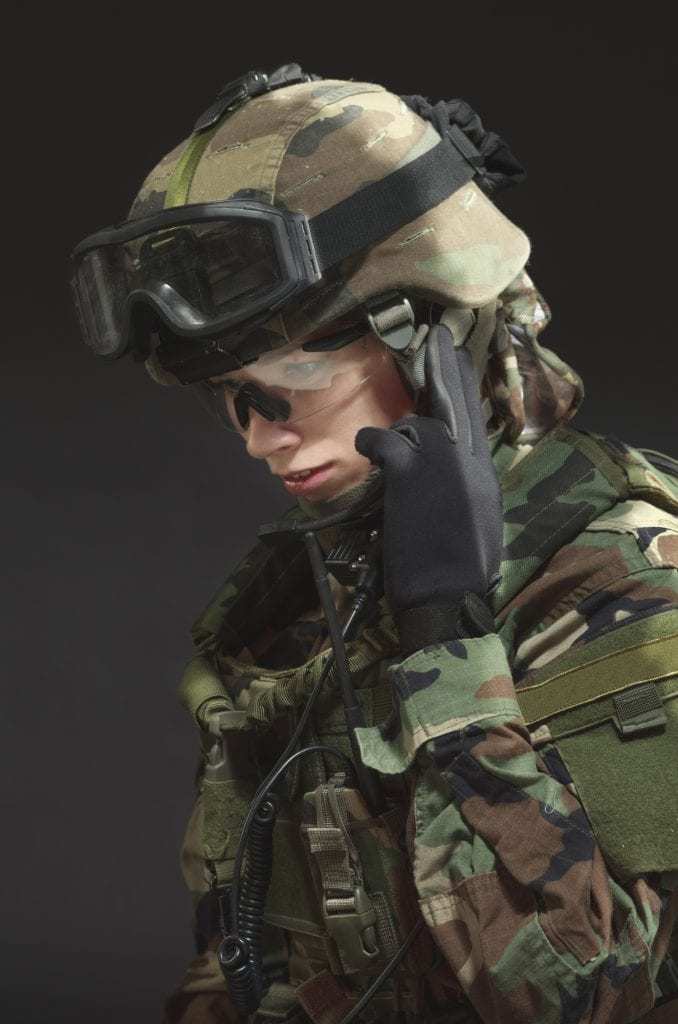Whether you’re a current member of the armed forces, someone considering joining the military, or a friend or loved one of a service member, never underestimate the importance of effective military hearing protection. During the course of their service, many members of the military are frequently exposed to high-intensity noises: aircraft, gunfire, machinery, explosions, sirens, and more. Whether these noises are acute, one-time sounds or continuous cacophonies, they can produce permanent, noise-induced hearing loss or tinnitus (which is characterized by ringing or buzzing in the ears). The more often you’re exposed to loud noises, the higher your risk of developing hearing loss, which is why it’s so important for our service members to wear hearing protection every time they are in a noisy environment.
Shockingly, many service members who believed they were properly protecting their ears learned afterward that the earplugs they used were allegedly defective. Beginning in 2003, 3M allegedly manufactured and sold defective combat earplugs to the military as a government contractor. The Justice Department and a competitor of 3M filed a joint lawsuit against 3M, reaching a multimillion-dollar settlement in July, and hundreds of veterans are now expected to file lawsuits as well.
Did you know that hearing loss and tinnitus are the most common disabilities amongst veterans? According to the U.S. Department of Veterans Affairs (VA), over 2.7 million veterans currently receive disability benefits to treat hearing loss or tinnitus. In fact, veterans are 30 percent more likely to suffer from a severe hearing impairment when compared with nonveterans.
Although not as apparent as physical injuries, hearing impairments can be severe and may impact a person’s long-term health and happiness in a variety of ways. Both hearing loss and tinnitus may disrupt a person’s ability to concentrate, communicate, sleep, and work, and this can lead to deteriorating relationships, social isolation, depression, and even cognitive decline.
The Allegations Against 3M
While military hearing protection is now standard issue and required for all active-duty service members, it is critical that the issued devices are effective at preventing damage. So when service members learned that 3M manufactured and sold defective earplugs to the military for over a decade, they felt deceived. Hundreds of thousands of service members relied on these combat earplugs to protect their hearing during both training and combat from 2003 to 2015.
The Justice Department alleged that 3M defrauded the U.S. government by selling protective hearing devices with “dangerous design defects” without disclosing the design defect. It further alleged that 3M “was aware prior to selling the earplugs to the military, texting procedures and fitting instructions were unlawfully manipulated . . .” (source). The lawsuit was settled in July, with the government receiving $9.1 million. 3M refused to admit liability, but they have discontinued the earplugs. Now, service members are filing lawsuits against 3M as well, with more than 300 pending so far.
How to Protect Your Ears
If you’re a member of the armed forces, it’s important that you understand how to safeguard your ears from noisy environments and work with an audiologist to ensure that you’re looking after your ears properly.
It’s a common myth that military hearing protection devices cause decreased situational awareness. In fact, modern technology available can simultaneously protect your ability to hear and enhance your situational awareness. To select an effective hearing device, you will need to take the environment, situation, noise type, and noise level into account. Your audiologist can help you determine which product best matches your needs and ensure that the device is correctly sized and properly fitted to your ears.
According to the Department of Defense Hearing Center of Excellence, the following military hearing protection devices can help prevent hearing loss and tinnitus:
- Foam Earplugs: The most common type of earplugs, foam earplugs are readily available at retail stores and don’t require professional fitting. They’re typically used for one-time exposures to hazardous noises.
- Triple- and Quad-Flange Earplugs: Triple-flange and quad-flange earplugs are available in a few different sizes and must be initially fitted by a professional. They’re reusable and primarily used for steady-state noise exposures when vocal communication is not necessary. A medical professional must assess the fit and condition of these earplugs annually.
- Tactical Earplugs: Tactical earplugs are also reusable, available in a few sizes, and must initially be fitted by a medical professional. However, they can be used when effective communication and situational awareness is important. Using the toggle switch on each earplug, you can choose whether hearing protection is needed for unwavering noises (airplanes, generators) or sudden noises (gunfire, explosions). They must also be examined annually by a professional.
- Noise Muffs: Noise muffs block noise from entering the ear canal, and they can easily be put on and taken off. They provide greater noise reduction than earplugs because the ear cups fit tightly over the ears, creating an airtight seal. They’re often used for occasional noise exposure, such as at a shooting range or on a flight line. Work with a professional to ensure the ear cups are properly fitted, and replace the cups when they begin to show signs of wear.
- Tactical Communication and Protective Systems (TCAPS): Manufactured by Invisio for the U.S. military, the TCAPS system effectively protects the ears from hazardous noises while also enabling situational awareness.
_____
Do you suffer from hearing loss or tinnitus as a result of occupational noise exposure? Or are you concerned about your ability to protect your ears properly during your noisy workday? Contact Sound Relief Hearing Center in Colorado or Arizona to schedule a hearing examination. During your consultation, we can discuss treatment options if you currently suffer from hearing loss or tinnitus and hearing protection technology that will help prevent further damage.
We are independently owned, so we always have the patient’s best interests at heart, and our state-of-the-art technology ensures that our patients receive the best treatment available. With our unparalleled excellence in the hearing industry, our dedication to patient satisfaction, and our commitment to helping people control and conquer their hearing issues, you can count on Sound Relief Hearing Center for support and assistance. To learn more about us, please browse our website, visit our YouTube channel, or give us a call at 720-344-7600. You can also schedule an appointment online to meet with one of our audiologists. We look forward to hearing from you!

